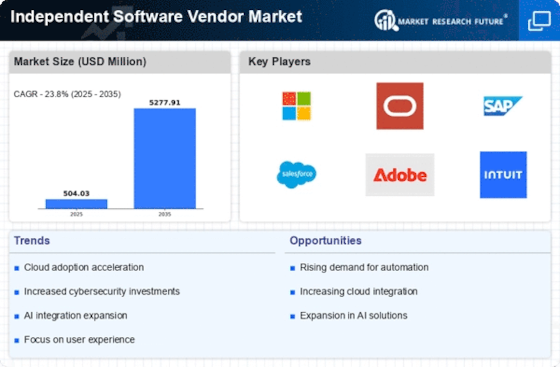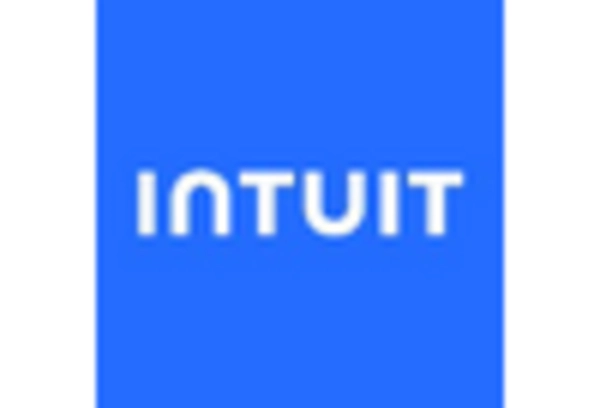Market Analysis
In-depth Analysis of Independent Software Vendors Market Industry Landscape
The global independent software vendors (ISVs) market reached USD 265.6 BN in 2022 and is projected to grow to USD 910.7 BN by 2032, with a 13.6% CAGR during the review period (2023-2032). The market dynamics play a pivotal role in shaping the software industry. ISVs develop, market, and sell software independently, often specializing in niche solutions or catering to specific industries. Understanding the market dynamics surrounding ISVs involves analyzing key factors that influence their operations, growth, and competitiveness. One fundamental aspect of ISV market dynamics is innovation. The software industry is dynamic and ever-evolving, driven by the constant demand for new and improved solutions. ISVs must stay at the forefront of technological advancements to remain competitive. This involves investing in research and development to create cutting-edge software that addresses emerging needs and challenges.
The ability of ISVs to innovate distinguishes them in the market and determines their long-term success. Collaboration and partnerships are another crucial dimension of ISV market dynamics. Many ISVs rely on strategic alliances with other technology providers, resellers, or platform developers to expand their reach and enhance their offerings. Such partnerships can open doors to new markets, provide access to complementary technologies, and create synergies that benefit both parties. Forming and maintaining effective partnerships is a key factor in the growth and sustainability of ISVs. Market segmentation is inherent in the dynamics of ISVs, as they often focus on specific industries, business sizes, or use cases. Developing software solutions to meet the unique requirements of a particular sector allows ISVs to carve out a niche and establish themselves as experts in that domain. This targeted approach enables ISVs to understand the needs of their customers better, resulting in more effective marketing and product development strategies.
Globalization is another factor that significantly influences the market dynamics of ISVs. With the rise of the internet and cloud computing, ISVs can easily distribute and sell their software globally. This presents both opportunities and challenges. While it allows ISVs to tap into a broader customer base, it exposes them to increased competition. Successful ISVs navigate this landscape by understanding regional variations in demand, compliance requirements, and cultural nuances. The subscription-based business model has gained prominence in the ISV market dynamics. Many ISVs have transitioned from traditional one-time sales to subscription-based models, offering software as a service (SaaS). This shift provides a more predictable revenue stream and fosters stronger customer relationships through continuous updates and support.
The subscription model aligns with the trend of businesses preferring scalable and flexible solutions, driving the evolution of ISV pricing strategies. Regulatory compliance and data security are major concerns for ISVs, especially as digital transformation accelerates across industries. Compliance with international standards and regulations is essential for building trust with customers. ISVs prioritizing robust security measures and compliance with data protection laws position themselves as reliable partners in an era where data privacy is paramount.


















Leave a Comment